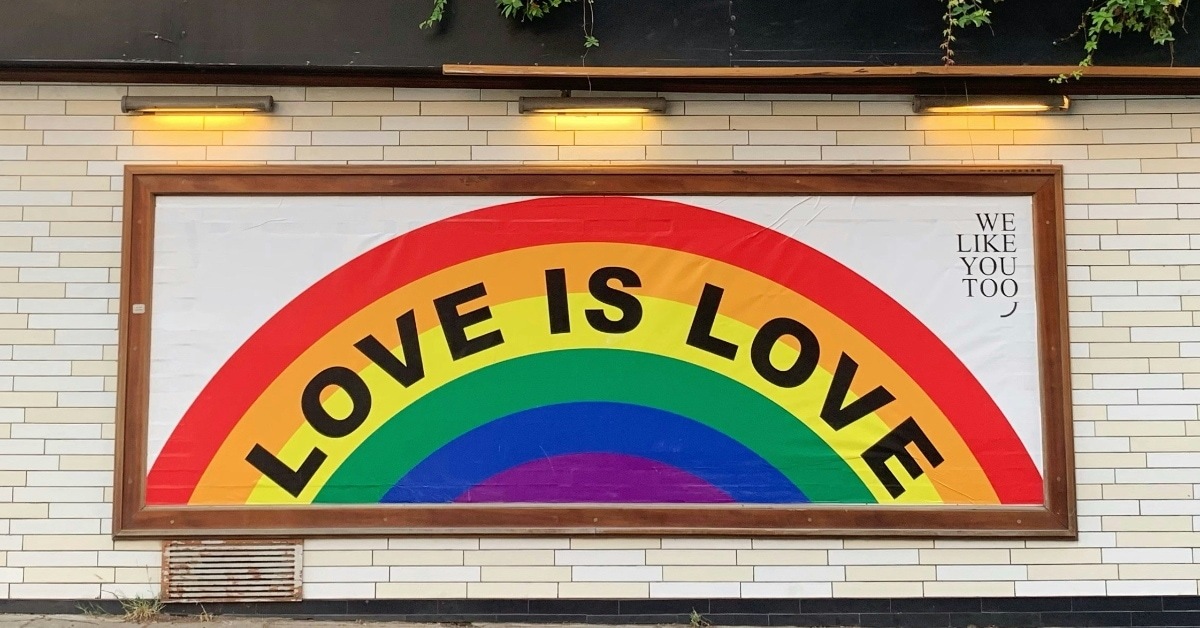Taking down racist arguments, part 1: Are Black people better off in America than in Africa?
OPINION: The idea that Black people benefit from being in America instead of Africa is racist and depends on not understanding history and I had time today so I decided to attack this racist argument The post Taking down racist arguments, part 1: Are Black people better off in America than in Africa? appeared first on TheGrio.

OPINION: The idea that Black people benefit from being in America instead of Africa is racist and lacks a basic understanding of history. I had time today, so I decided to attack this racist argument.
Editor’s note: The following article is an op-ed, and the views expressed are the author’s own. Read more opinions on theGrio.
The other day, I heard some white person online say, “In spite of slavery, Black people are ultimately better off in America than in Africa.” Of course, I had all the emotions—I did an internal scream, my blood pressure rose to the boiling point, and I felt like strangling someone. But then I said, I’m gonna let my pen handle it because if I don’t, I might go to jail. So I’m launching a new series: taking down racist arguments. Consider this TDRA No. 1.
There are so many problems with this idea that Black people are ultimately better off being in America than in Africa. The first thing that jumps out to me is that the whole framing is wrong. The speaker assumes that America is just inherently awesome and Africa is inescapably backwards, and the enslavers saved modern African-Americans from that hell and brought us to this heaven. Can you say, white savior complex?
But let’s pull back the lens a bit—in “The Black Diaspora: Five Centuries of the Black Experience Outside Africa,” scholar Ronald Segal asserts that the trans-Atlantic slave trade led to the kidnapping, trafficking and enslavement of almost 12 million African people and also an equal number may have died in the violence of raiding areas, capturing people and transporting them. So in a 400-year period, western Africa may have lost around 24 million people. You cannot disconnect the fact that western African countries are suffering from some issues from the fact that those countries lost a gigantic number of young, able-bodied people over the course of a few centuries. No place could go through a mass subtraction like that and not be deeply impacted. The countries of western Africa would surely be vastly different if not for the massive theft of human beings in the name of slavery.
On top of that, over the past several centuries, much of Africa has been crippled by the impact of European colonialism. The control and manipulation of African nations had a devastating impact on almost every aspect of African life. African politics were distorted as Europe installed and propped up dictators who would be loyal to them. The African economy was destroyed as Europe stole raw resources and blocked manufacturing. The African education system was constructed to create low-skilled workers rather than people who could help lead Africa forward in technology. Europe did almost everything it possibly could to hold Africa back. In 1972, academic and historian Walter Rodney wrote a landmark text called “How Europe Underdeveloped Africa,” which explores how African nations were underdeveloped by Europe’s colonial powers. He argues that Europe damaged Africa and that damage led to Africa aiding Europe.
“The negative impact of colonialism in political terms was quite dramatic. Overnight, African political states lost their power, independence, and meaning—irrespective of whether they were big empires or small polities,” Rodney wrote. “Certain traditional rulers were kept in office, and the formal structure of some kingdoms was partially retained, but the substance of political life was quite different. Political power had passed into the hands of foreign overlords. Of course, numerous African states in previous centuries had passed through the cycle of growth and decline. But colonial rule was different. So long as it lasted, not a single African state could flourish.”
There is no separating the troubles that Africa faces today from European colonialism. Looking down your nose at Africa without recognizing Europe’s deliberate part in creating it is to completely misunderstand history.
At the same time, you can’t disconnect the economic success of the United States from having millions of slaves to help build it. It was because of slavery that America became a global economic power. Economist Mark Stelzner of Connecticut College and historian Sven Beckert of Harvard University argue that “The economic trajectory and development of capitalism in the United States are inextricably linked to the brutal institution of slavery,” writes Kathryn Zickuhr for Washington Center for Equitable Growth. “…the work of enslaved Americans was an important driver of growth not only in the South but also for the national economy as a whole, comparable to the growth in per capita output of manufacturing workers in New England.”
An article from the New York Times’ “1619 Project” put it more bluntly: Slavery “helped turn a poor, fledgling nation into a financial colossus. Slavery was undeniably a font of phenomenal wealth. By the eve of the Civil War, the Mississippi Valley was home to more millionaires per capita than anywhere else in the United States. Cotton grown and picked by enslaved workers was the nation’s most valuable export. The combined value of enslaved people exceeded that of all the railroads and factories in the nation. New Orleans boasted a denser concentration of banking capital than New York City.”
The truth is not that Africans were transported into a thriving nation. It’s that our enslaved ancestors were critical to why America became the global economic power we know today. African people unwillingly built both America and Europe. When you’re denigrating Africa and extolling the virtues of America and Europe, don’t forget that the destruction of Africa was purposeful and a crucial part of creating the “Western civilization” that we know today. Don’t ask African-Americans to thank enslavers for “rescuing” us from Africa. Ask white Americans who appreciate and rely on America’s economic stature to thank the African-Americans who were crucial to building this country.
The comment that we’re better off in America than in Africa also assumes that the countries of Africa are just a large, troubled mess of jungle where there are tigers and warlords and poverty. American media does a good job of perpetuating that notion, but I think that America has some of the same issues we like to point out in Africa. We just had a virtual dictator, we have cities like Flint, Mich., that went years without clean drinking water, and we have crumbling roads and bridges. I remember when Trevor Noah was on “The Daily Show” for the first time, and he led a little game called “Spot the Africa,” showing photos from America and Africa and asking host Jon Stewart to tell him which photo is from which place. Stewart got all the answers wrong. Then Noah told him that African mothers tell their kids, “Be grateful for what you have because there are fat children starving in Mississippi.” The notion that America is all glittering, modern cities is silly jingoism, just as the idea that Africa is made up of backward, rundown cities is racist and pathetic. America has significant problems with homelessness, poverty and mass incarceration—we shouldn’t look down on anyplace else.
There’s another significant problem with the idea that Black people should somehow be grateful for the slave trade bringing us here because it all worked out in the end. It didn’t. The many forms of oppression we have endured in America have led to intergenerational trauma that sits inside most African-Americans. A recent piece in the American Journal of Psychiatry found that “African-American adults who have depression rate their symptoms as more severe, have a longer course of illness, and experience more depression-associated disability.” They found that “structural racism and cumulative trauma can be fundamental drivers of the intergenerational transmission of depression” among African-American adults. Other studies have shown that racism has shortened Black lifespans.
It’s crazy to think slavery was a long time ago and thus it doesn’t impact us anymore. It continues to have a significant impact on our spirits and our economic prospects. Getting to experience the creature comforts of America doesn’t lessen the power of racism.
The story of the African-American journey is that we have made the best of a horrible situation. We took the worst parts of the pig and created soul food. We took our pain and created jazz, the blues, rock, soul, hip-hop and more. We are a kidnapped people who made a way out of no way. We do not owe white supremacy a “thank you” because we were resourceful and helped make this country great. If you think African-Americans are better off in the long term because of slavery, do you think that America is better off because of African-Americans? Do you think the continued pain and difficulty of being African-American is really worth the right to be a consumer in America?
I think that if we were in Africa, if we had never been stolen, if the slave trade had never happened, we would be building cities so epic that Wakanda would look cute by comparison. Don’t ever think that African-Americans owe America some sort of gratitude for the horrors we have had to live through when the truth is, it’s America that owes us.

Touré is a host and Creative Director at theGrio. He is the host of the podcast “Toure Show” and the podcast docuseries “Who Was Prince?” He is also the author of seven books including the Prince biography Nothing Compares 2 U. Look out for his upcoming podcast Being Black In the 80s.
TheGrio is FREE on your TV via Apple TV, Amazon Fire, Roku, and Android TV. Please download theGrio mobile apps today!
The post Taking down racist arguments, part 1: Are Black people better off in America than in Africa? appeared first on TheGrio.












